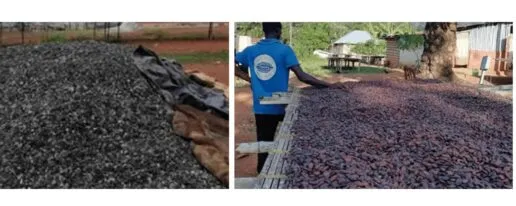The relevance of cocoa agroforestry is widely discussed in debates on sustainability transition in cocoa, especially in the context of ending hunger and poverty among cocoa farmers. Whereas this has led to multiple cocoa agroforestry investments by NGOs, governments, and cocoa and chocolate companies in West and Central Africa, a notable gap exists in the literature on how these interventions respond to the needs of cocoa farmers who are typically framed as the primary target of equity in cocoa sustainability discussions.
This paper, written by Eric Kumeh contributes to bridging this gap by analyzing equity in implementing various cocoa agroforestry projects by different actors in Ghana’s Juabeso-Bia Landscape (JBL)
Read the full paper here
Related Research Themes

Scale and Technology
Tracking and evaluating nature recovery at both fine resolution and large spatial scales utilising state-of-the-art remote sensing, big data, and deep machine learning techniques.

Society
Encompassing the governance and socio-cultural dimensions of nature recovery.
Related Outputs
The political ecology of cocoa agroforestry and implications for equitable land use in rural Ghana.
The relevance of cocoa agroforestry is widely discussed in debates on sustainability transition in cocoa, especially in the context of ending hunger and poverty among cocoa farmers. Whereas this has led to multiple cocoa agroforestry investments by NGOs, governments, and cocoa and chocolate companies in West and Central Africa, a notable gap exists in the […]


